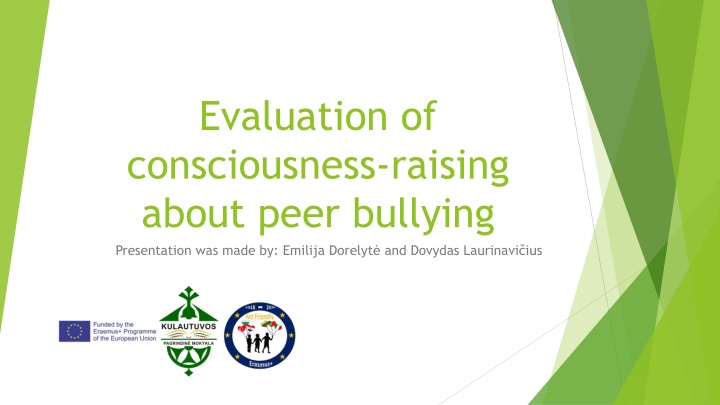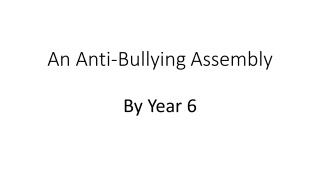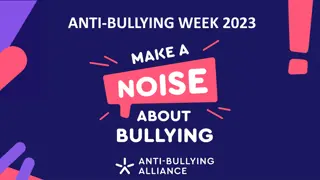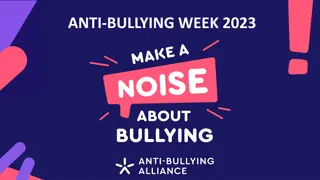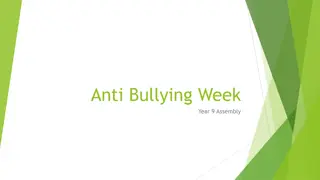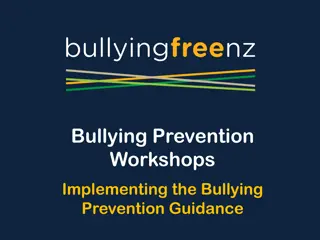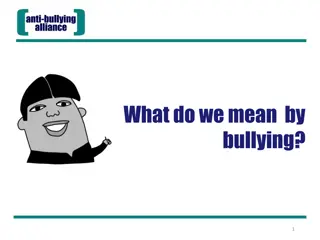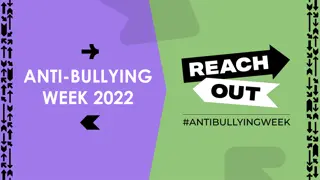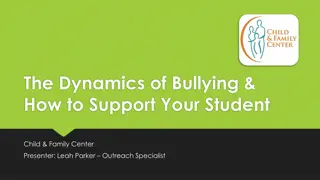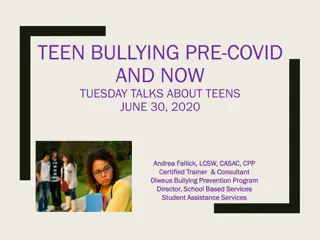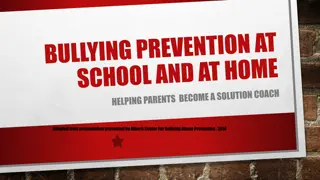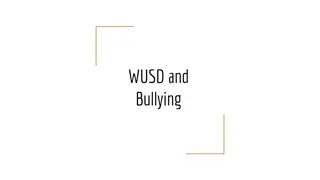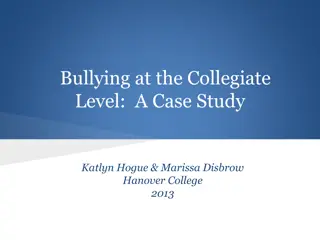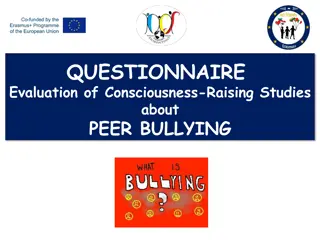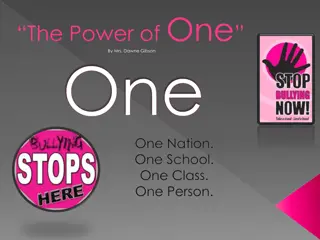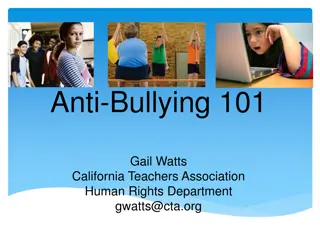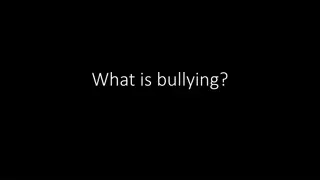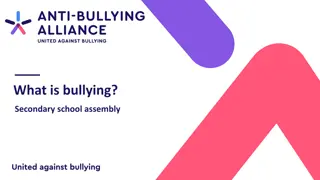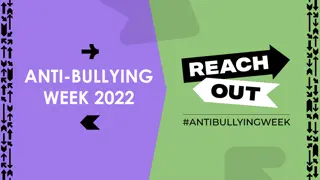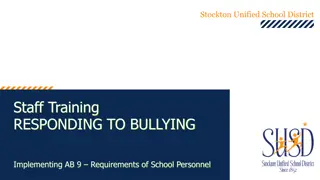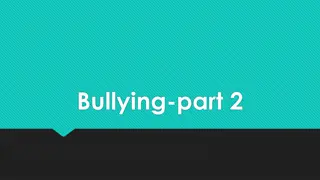Evaluation of Consciousness-Raising About Peer Bullying: Insights from a Presentation
The presentation on consciousness-raising about peer bullying by Emilija Dorelyt and Dovydas Laurinavičius included a participation questionnaire with 18 girls and 24 boys aged 14-16. Results showed disparities in awareness, sources of information, and responses to bullying between genders, highlighting the need for targeted interventions and support mechanisms.
Download Presentation

Please find below an Image/Link to download the presentation.
The content on the website is provided AS IS for your information and personal use only. It may not be sold, licensed, or shared on other websites without obtaining consent from the author.If you encounter any issues during the download, it is possible that the publisher has removed the file from their server.
You are allowed to download the files provided on this website for personal or commercial use, subject to the condition that they are used lawfully. All files are the property of their respective owners.
The content on the website is provided AS IS for your information and personal use only. It may not be sold, licensed, or shared on other websites without obtaining consent from the author.
E N D
Presentation Transcript
Evaluation of consciousness-raising about peer bullying Presentation was made by: Emilija Dorelyt and Dovydas Laurinavi ius
Participation Questionnaire participants 18 girls and 24 boys (ages 14 16)
Q.1 Do you have any information about Peer Bullying? 16 14 12 10 8 6 4 2 0 Boys Girls Yes No
Q.2 Where did you get the information about Peer Bullying from? 16 14 12 10 8 6 4 2 0 Boys Girls From the films I watched at school From the posters and brochures at school From what our teachers told us Other
Q.3 Do you know what to do when somebody bullies you? 25 20 15 10 5 0 Boys Girls Yes No
Q.4 Who do you ask for help when you are bullied? 10 9 8 7 6 5 4 3 2 1 0 Boys Girls My family My teachers My friends School Counselling Service Other
Q.5 Can you help someone who is bullied? 25 20 15 10 5 0 Boys Girls Yes No
Q.6 How can you help someone who is bullied? 9 8 7 6 5 4 3 2 1 0 Boys Girls I tell about it to my/his-her family I call the security service Other I tell it to my teachers I tell about it to the School Counselling Service
Conclusions 14 out of 24 boys don t have any information about peer bulying, but 50% of girls which participated have information about bulying. Mostly, boys and girls get information about bullying from posters at school. Almost every boy and all girls know what to do when they are bullied. When boys are bullied, they ask for help their friends and School Counselling Services. However, girls ask for help their family . Most boys and girls can help someone who is bullied. When someone is being bullied, boys tell their teachers, girls tell bullied person s family.
Recommendations If you are being bullied, don t be afraid and tell about it to your friends, family, teachers, school counselling services. If you see someone who is being bullied, don t be indifferent, tell someone (their family, teachers, School Counselling Services). Following the conclusions it can be claimed that project aims are nearly reached.
Thank you for your attention
